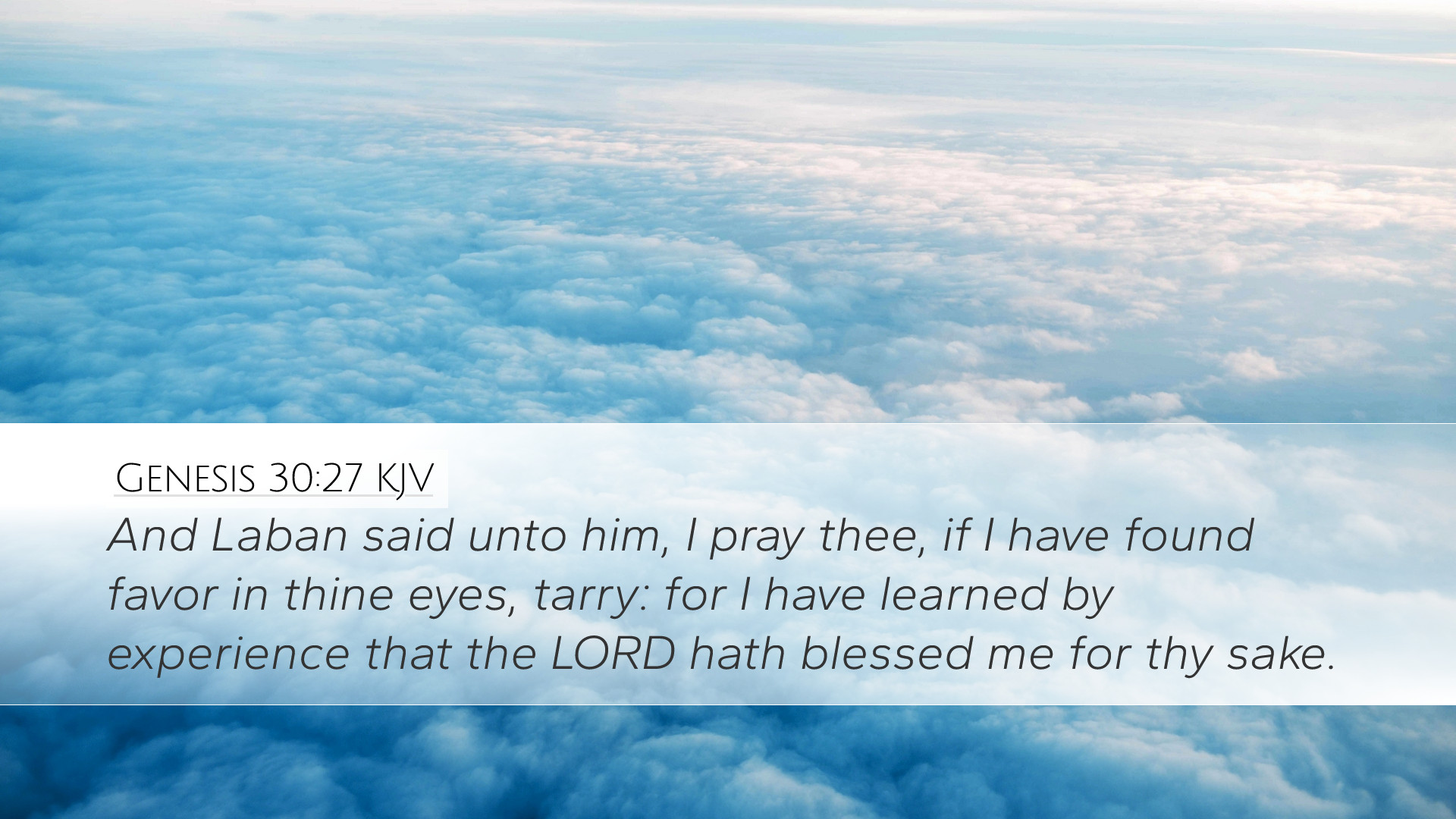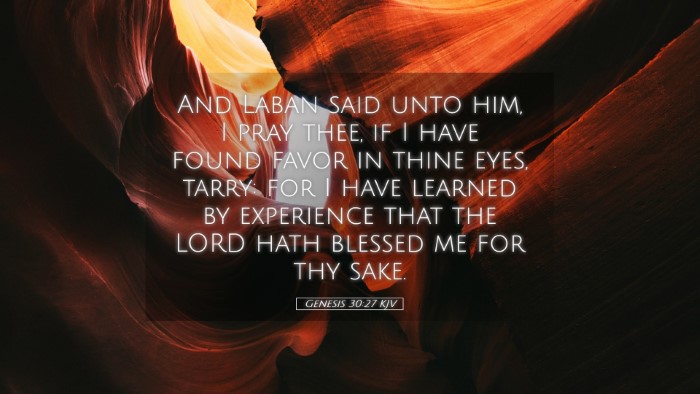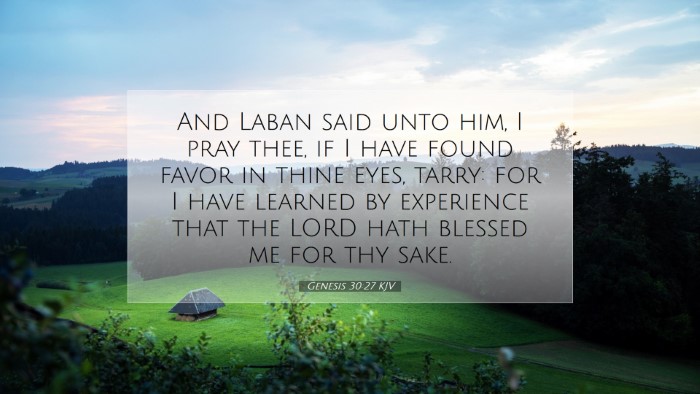Commentary on Genesis 30:27
Genesis 30:27 states: "And Laban said unto him, I have learned by experience that the Lord hath blessed me for thy sake." This verse captures a significant moment in the narrative of Jacob's life, reflecting themes of divine providence, human interaction, and the complexities of the covenant relationship.
Contextual Background
The events surrounding this verse occur during Jacob's time in Haran, where he worked for Laban for many years. Jacob sought to secure his future and establish his own family amid the challenges posed by Laban's deceitful practices. This context is essential for understanding Laban's acknowledgment of God's blessing through Jacob.
Theological Implications
The phrase "I have learned by experience" suggests a significant awareness on Laban's part. Here, we see:
- Divine Blessing: Laban’s recognition of God's blessing indicates that even those outside the covenant can discern God's favor on His chosen people.
- Human Relationships: Laban's remarks highlight the interconnectedness of human and divine affairs. Jacob’s divine favor brought material prosperity to Laban, pointing to the influence one individual can have within God’s providence.
Commentary Insights
Matthew Henry provides a detailed observation on Laban's character, noting that he is a shrewd but ultimately selfish individual whose blessing came through another’s labor. He emphasizes that Laban’s logic reflects a common awareness of how God operates in the lives of His servants.
Similarly, Albert Barnes notes that Laban, despite his deceit and manipulation, is forced to acknowledge the benefits that Jacob's presence has conferred upon him. This acknowledgment does not necessarily imply Laban's faith in God but indicates an awareness of God's workings.
Adam Clarke expands upon this by suggesting Laban's declaration may serve as a cautionary tale about recognizing God’s sovereignty, even in situations where one may not seek God deeply. Clarke emphasizes that while Laban benefits from Jacob's righteousness, he remains an example of a person who, while experiencing God’s blessings, continues in self-serving behavior.
Practical Applications
For pastors and theologians, this verse offers profound lessons:
- Understanding Blessings: It reminds followers of Christ that they may serve as vessels of God’s blessing in their environments, and often, these blessings will not always align with immediate recognition or gratitude from others.
- Encouragement to Faith: The passage is an encouragement to maintain faith in contexts where one's contributions might not be recognized, as God can work through our efforts even in challenging scenarios.
- Caution Against Manipulation: Laban’s character serves as a reminder to resist being manipulative or self-serving in relationships, instead leading with integrity and faithfulness.
Conclusion
Genesis 30:27 reveals the dynamic interaction between divine favor and human roles. Laban’s admission of blessing provides a commentary on the broader biblical narrative which emphasizes God's sovereignty and providence through His chosen individuals. Understanding this verse deeply augments one’s theological and pastoral framework as it encourages a posture of receptivity to God’s blessings while being mindful of our roles in the lives of others.


